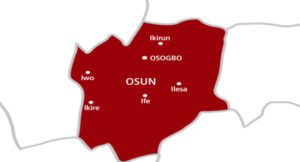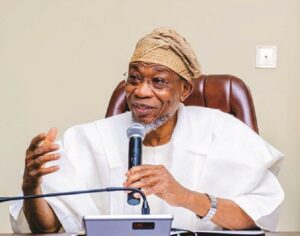
On Presidential yacht and other matters
By Temitope Ajayi
It has become a pattern for some individuals, CSOs and a section of the media to pick one or two line items every budget cycle for sensational headlines, deliberately ignoring context in their reporting.
The public that should benefit from good journalism, which should primarily educate and adequately inform, is left confused and miseducated due to mischaracterisation of issues and misrepresentation of facts.
The trending issues on social media since yesterday are two items in the 2023 supplementary budget. One is the provision for a presidential yacht in the supplementary budget by the Navy and the other is over N6 billion for vehicles to the State House.
It is important to state clearly that President Bola Tinubu didn’t ask for a presidential yacht and I doubt he needs one to perform the functions of his office. From what I know, the request for a yacht, however it is named or couched in the budget, is from the Navy and they must have operational reasons for why it is required.
The budget office should be in a position to also explain to the public why such expenditure should be accommodated now, considering the economic situation of the country. I must readily admit that the one reason our budgeting system has been a subject of public attack is the very simplistic way some of the line items are described by civil servants, who prepare the budget. Examples abound. Sometimes in 2016, an Enterprise Resource Planning ( ERP) project of the Ministry of Solid Minerals worth over N300m then was captured in that year’s budget as “website”. Naturally, it generated a massive controversy as people, rightly, asked to know the type of website that will be built with N300million.
It is important to say that journalism should enrich public enlightenment and not create an atmosphere of siege. It is poor reporting to always reduce State House budgetary provisions to the President and Vice President. When the State House makes provision for vehicles, it is reported as if it is the President that will use all the vehicles or eat all the food when a provision is made for food and catering services. We have had such inaccurate reporting in the past. A President and Vice President cannot, for any reason, spend N20 million naira to eat in a year if it is about the food they will eat as first and second families. How much food can a person really eat? Yet, we will read headlines that Tinubu, Buhari, Jonathan or whoever the President is wants to spend N5billion on food and catering in a year when in actual fact such budgetary provisions are made to accommodate many state events, meetings, hosting of VIPs, foreign dignitaries, and even visits by other Head of States, and o bilateral and multilateral meetings that the State House will deal with in a given year.
It is worth stating that in August this year President Tinubu as the Chairman of the Authority of Heads of States and Governments of ECOWAS hosted two extraordinary summits of the regional body over the political crisis in Niger Republic. The two summits required catering services for the ECOWAS leaders and their delegation. Just this past Sunday, German Chancellor Olaf Scholz was on a State Visit to Nigeria with a delegation of top business men and women from Germany. The President hosted the visiting Chancellor and his delegation to a state banquet. State House budget for food and catering services is spent on such events. It is not spent essentially to feed the President and Vice President.
On matters of vehicles, the N6 billion budget provision is not to buy vehicles for the President and Vice President alone. President Tinubu and Vice President Shettima are not using any new vehicles in their fleet. They are using inherited vehicles. There are hundreds of civil servants and political aides working at the State House who need operational vehicles. I am a senior aide of the President. I am using my personal car and at my own expense since I resumed work more than five months ago. Like me, virtually all the appointees of the President are using personal vehicles at their own expense for official duties. Most of the vehicles in the pool for various departments are run down. Even members of the State House Press Corps do not have a functional bus to ease their movement. I know for a fact that a request for a new bus for the State House Press Corps is captured in the supplementary budget for vehicles.
It is necessary to add that none of the political appointees has drawn any benefit and perks from the public treasury. I must add that in 5 months, we have not even received a kobo as salary because of procedural issues involved in capturing new appointees on the payroll via IPPIS.
The Presidency is a huge Bureaucracy with hundreds of staff. Any budget head for the State House is to run the system, not for an epicurean fantasy of a sitting President and Vice President. In this pageview-centric and social media age, it is easy to provoke public rage. It is also tempting for bloggers and quack journalists to take the easy road of sensationalism to attract traffic to their blogs and news websites. But good journalism, I believe, should be about substance and nuanced reporting.
Ajayi is a Senior Special Assistant to the President on Media and Publicity



